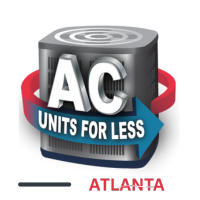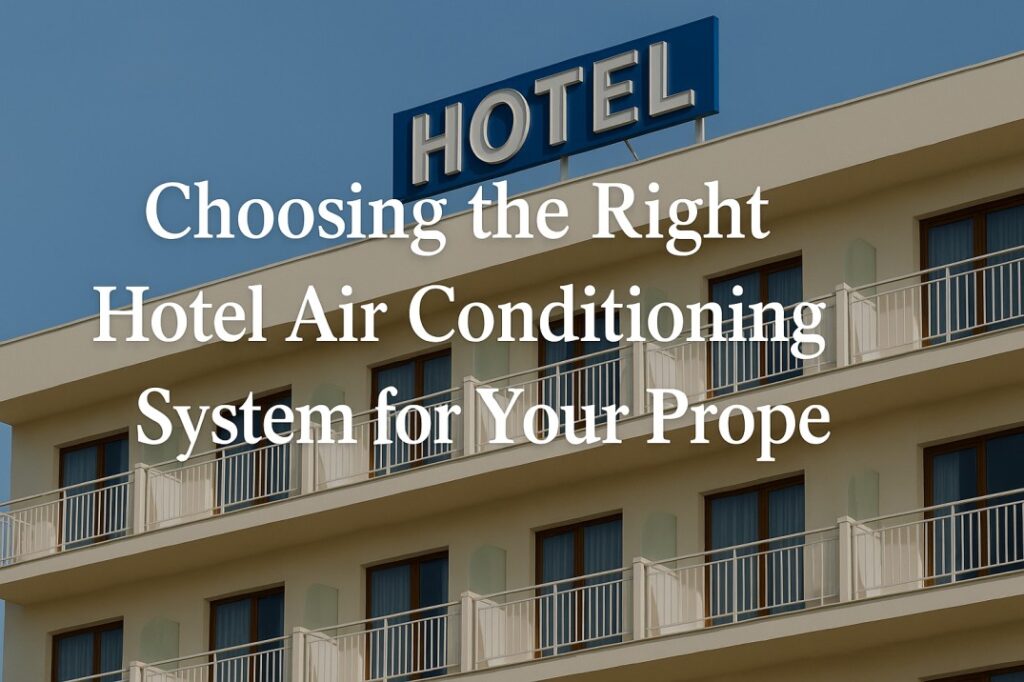Guest comfort helps build loyalty in the hospitality business. Controlling the hotel’s interior climate is one of the most crucial aspects of delivering a positive visitor experience. Regardless if you run and manage a small boutique inn or a multi-story resort, the choice of hotel air conditioning system will impact guest satisfaction, energy savings, and even operational productivity.
With numerous technologies and system types available, hotel owners and facility managers must carefully evaluate which air conditioning solution fits their needs best. From room-by-room control to whole-building climate systems, the right decision begins with understanding your property’s layout, budget, and comfort goals.
Why Hotel Air Conditioning Matters More Than Ever
Your guests expect absolute comfort the second they arrive. Stuffed rooms, inadequate air circulation, and poor temperature control in hotels lead to negative reviews, low occupancy rates, and a loss of brand value. For this reason, the hotel air conditioning has to be regarded as a strategic asset rather than just another functionality.
Today’s technological advancements increase convenience, reduce energy usage, and allow more sophisticated management of a building, improving the management of a facility. With an increased focus on energy efficiency and sustainability, businesses are now more strategically catering to trends in systems designed to save energy.
Understanding Different Types of Hotel AC Units
Different types of air conditioning systems serve various properties based on their preferred control level, property size, and infrastructure design. Below are some of the hotel AC units you are likely to find
- Packaged Terminal Air Conditioners (PTAC): Most economy and mid-range hotels utilize PTACs. They allow individual room control, making them easy to use for quick installations and renovations.
- Ductless Mini-Split Systems: A wonderful option for boutique hotels or properties without existing ductwork, offering quiet performance and zoning flexibility.
- Variable Refrigerant Flow (VRF) Systems: These are ideal for larger properties and offer precise temperature control, energy-efficient operation, and the ability to simultaneously heat and cool different zones.
- Chilled Water Systems: These are centralized cooling systems often used in high-rise hotels. These systems are suitable for large-scale operations as they deliver cooling through a centralized plant.
Choosing the right hotel AC units means weighing the pros and cons of these technologies in relation to your space, maintenance needs, and guest expectations.
How Hotel HVAC Systems Support Operational Efficiency
Today’s hotel HVAC systems offer much more than temperature control. They are advanced, connected, and efficient. With modern systems, hotel managers can monitor performance, energy usage, and guest comfort levels thanks to the centralized controls.
With features like smart thermostats and zoned temperature control, some systems offer Smarter Climate Control that can reduce energy expenses significantly during off-peak hours or when no guests are present. This saves money and improves long-term profitability.
For large hotels with multiple floors and usage zones like lobbies, restaurants, guest rooms, and meeting areas, full integration with Building Management Systems (BMS) offers centralized control and monitoring of hotel air conditioning systems, making it highly useful for multiple-zoned buildings.
Key Features to Consider in Air Conditioning for Hotels
When selecting air conditioning for hotels, identify factors that offer more than just cooling capacity:
- Noise Levels: Quiet operation is especially crucial in guest rooms. System noise reduction aids sleep and enhances guest comfort.
- Air Quality: Look for systems with built-in filtration to reduce allergens, odors, and contaminants, especially in a post-pandemic world.
- Guest Control: Individual temperature control for each guest reduces complaints and increases customer satisfaction.
- Maintenance Needs: Easy-to-clean filters and accessible unit maintenance can achieve cost savings on labor and time.
- Energy Efficiency: Ensure equipment and facilities have high SEER ratings and are certified on the Energy Star level.
All hotel air conditioning features enhance guest satisfaction while simultaneously protecting the operational longevity of the facility.
Exploring Commercial Air Conditioning Systems for Hotels
High-end hotels and larger properties often have more demanding needs, like commercial air conditioning systems. These systems can manage greater capacity requirements while offering improved zoning and automation, improving reliability as well.
They include:
- Rooftop Units (RTUs): Centralized control and easy maintenance access make these perfect for hotels with flat roofs.
- VRF/VRV Systems: These provide scalable, energy-efficient cooling to hundreds of zones at once.
- Chiller and Boiler Systems: These perform well in multi-story buildings, enabling greater HVAC loads and offering consistent temperature control throughout the building.
Commercial air conditioning systems not only provide high performance, they also deliver long-term savings through improved energy efficiency and durable component design.
Choosing the Best HVAC System for Hotels Based on Property Size
Every hotel is unique, just like their air conditioning requirements. Smaller hotels with fewer rooms may be best served with individual units such as PTACs or ductless mini-splits. On the other hand, full-service or resort-style hotels usually require more sophisticated systems with zoning capabilities to control temperatures in numerous areas.
When selecting an HVAC system for hotels, keep these factors in mind:
- The building’s age and layout
- Existing infrastructure (ductwork, electrical load)
- Climate for the region
- Guest expectations (luxury vs. basic amenities)
- Cost and investment return (ROI) goals
Commercial HVAC professionals can assist in assessing all variables and ensuring your system is adequately sized with respect to energy consumption and performance efficiency. For tailored solutions, explore our services in hvac equipment sales Flowery Branch.
Final Thoughts: Invest in Comfort, Reap Long-Term Rewards
In the hospitality industry, comfort builds brand loyalty and brings in repeat business. Choosing the right thing for your hotel air conditioning system is a pivotal decision for your business. The selected system will greatly impact operational efficiency and guest satisfaction, directly affecting the hotel’s long-term value.
If you are constructing a new building or renovating an existing one, compare different hotel AC units, analyze your requirements, and seek advice from specialists who understand the peculiarities of hotel HVAC systems. Also, keep in mind that air conditioning for hotels is a significant investment not just in weather control, but also in reputation, comfort, and long-term success. Contact us to find the right system for your property.

